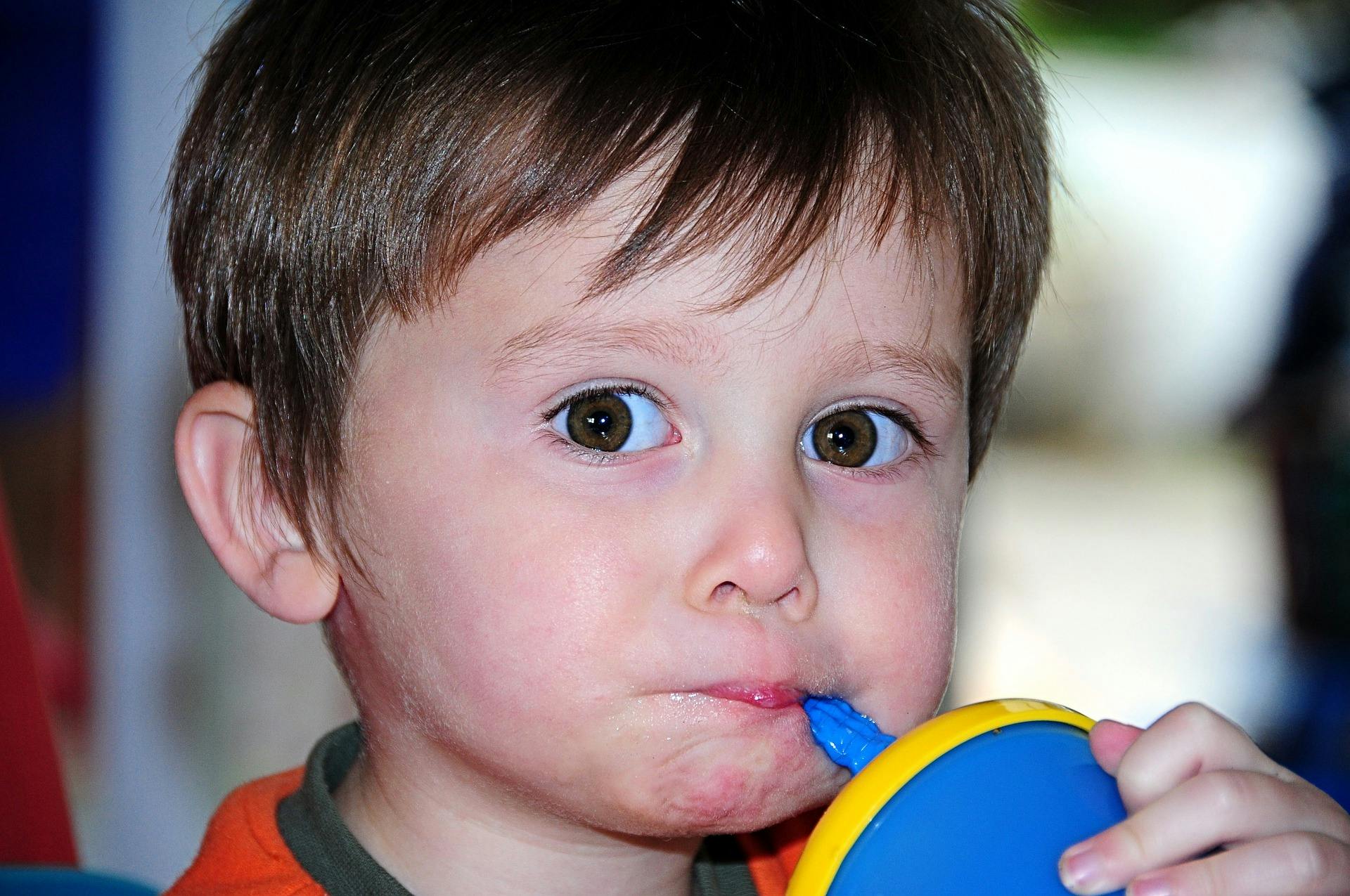Awhi is still in development, we'd love your feedback and suggestions. Let us know.
Help! My child won’t eat!
Eating can be complex - despite what other people say. Children of all ages can struggle with eating.
Learning the skills required for independent eating is a complex, and sometimes lengthy business. We often take for granted the idea that eating is natural, easy-to-do and simple. Not being able to get your child to eat can be stressful and upsetting for parents.
Almost all children can go through a stage of so-called picky or fussy eating. Some have serious feeding challenges that require professional help. Take the questionnaire to see if your child might need extra help.
Here are a few tips to help you get started.
Make it fun – Mealtimes can be stressful and unpleasant for your child if they are confused about eating. Try to take away any stress – don’t pressure them to eat something they don’t like or are unfamiliar with, allow them to take their time, let them explore their food with their hands – squishing/prodding/stirring - before eating it if they want to.
Know your child’s preferences – most parents will have a good handle of their child’s likes and dislikes when it comes to eating. But think about preferred mealtime routines, favourite places to eat, toys which can come to the dining table with them and keep them company, or model eating. Keeping a diary over a few days or weeks can help. Working out your child’s unique eating preferences can be crucial to successful mealtimes.
Plan ahead – Make sure your child has enough time to eat their meal without feeling pressured. Try not to plan any activities immediately after eating. Think about what kinds of meals will appeal to your child and how you could present it so that it is appealing to them.
Allow choices – Having choices improves confidence and self-esteem, as well as boosting the chances that your child will eat what you offer them.
Support and adapt – Recognise that some eating tasks might need to be tweaked. For example, a specially adapted chair could mean they sit at the table comfortably and easily. Other tools could include special cutlery, a non-slip bowl, or a table mat, with pictures to help guide them. Be patient as they take a while to master all the steps required for independent eating and drinking.
Communication – Use simple, clear language that is is positive and calm. Think about your body language for example don’t stand over your child or do anything that could be interpreted as intimidating. Show your child the food you are giving them. Let them respond in their own time and be prepared to accept ‘No’ for an answer if they don’t want to eat a particular food item. Tune in to their body language, and what it may say about their emotional state.
Reduce noise and distractions – Eating a large meal can require a lot of concentration. Make it easy for your child by eliminating distracting noises and activity. Comparing their eating habits with siblings or other people, even if intended as encouragement, could increase their stress.
Think about providing smaller meals more often - Six to eight smaller meals a day could give a child with a small appetite or attention span time to eat at their own pace and finish their meal. Small servings can also reduce feelings of being overwhelmed, emotionally and physically.
Finger food – Ditch the cutlery if your child has difficulty using them or sitting still (you can always re-introduce them later). Finger food can be safely eaten while moving around, and helps children learn how to coordinate hand to mouth coordination. It also helps with preparing to swallow, and swallowing.
Difficulty swallowing – Some children can have difficulties swallowing food. Consult your doctor and a dietician on appropriate strategies. They will often recommend feeding your child food that has been pureed or minced, or thickened smoothies, before gradually moving on to more solid food, as your child progresses. Modelling the process of successful swallowing - bringing food to your mouth, opening your mouth, chewing thoroughly before swallowing – can help your child master this task. Make sure your child is sitting upright and is able to do so for 20-30 minutes after eating.
Sticky fingers - Don’t sweat the mess. The important thing is for your child to eat a nutritious variety of foods, happily and enthusiastically, no matter how messy it may get.
If you’re still struggling with teaching your child eating skills, and/or are worried their intake of nutritious food and liquid is insufficient to thrive and be healthy, don’t hesitate to consult your GP, paediatrician or a qualified dietician.
For more on this topic, check out other panui from Awhi Nga Matua and IHC Library in this series_: Is my child more than a fussy eater?; Nutritional challenges for neurodiverse children; Menu planning for your child; Eating out with your neurodiverse child_. Or contact the IHC Library on 0800 442 442, or email librarian@ihc.org.nz. You might also like to check out the resources listed below.
Resources
Feeding challenges in young children :
Feeding challenges in young children :
"Young children's feeding issues can be a complex challenge for...
"Young children's feeding...
Eating well :
Eating well :
"This is an evidence-based report which summarises available...
"This is an evidence-based...
The parent's guide to occupational therapy for autism and other special needs :
The parent's guide to occupational therapy...
"Expanding upon the award winning first edition, this essential...
"Expanding upon the award...
The parent's guide to occupational therapy for autism and other special needs :
The parent's guide to occupational therapy...
"Expanding upon the award winning first edition, this essential...
"Expanding upon the award...
The Down syndrome nutrition handbook :
The Down syndrome nutrition handbook :
Using her knowledge and expertise as a registered dietitian and...
Using her knowledge and...
It's all about the food not the fork! :
It's all about the food not the fork! :
"Imagine your'e not comfortable with cutlery, can't face a large...
"Imagine your'e not...
Supernourishment for children with autism spectrum disorder :
Supernourishment for children with autism...
"Full of simple yet innovative recipes, this book provides a...
"Full of simple yet...
Supernourishment for children with autism spectrum disorder :
Supernourishment for children with autism...
"Full of simple yet innovative recipes, this book provides a...
"Full of simple yet...
What to feed an Asperger :
What to feed an Asperger :
"Packed with essential tips and tricks for getting Asperger kids to...
"Packed with essential tips...
What to feed an Asperger :
What to feed an Asperger :
"Packed with essential tips and tricks for getting Asperger kids to...
"Packed with essential tips...
Autism :
Autism :
"This book will show you the most common hygiene problems that...
"This book will show you...
Autistic logistics :
Autistic logistics :
"This updated edition is based on Kate Wilde's decades of...
"This updated edition is...
Autistic logistics :
Autistic logistics :
"This updated edition is based on Kate Wilde's decades of...
"This updated edition is...
EDANZ :
EDANZ :
"EDANZ is run by parents, caregivers, and people who have fully...
"EDANZ is run by parents,...
How to talk to others about your child's eating challenges :
How to talk to others about your child's...
"When a child has mealtime challenges due to special needs like...
"When a child has mealtime...
Top 10 myths of mealtime :
Top 10 myths of mealtime :
"We believe in helping others reach their full potential. We...
"We believe in helping...
Would my child benefit from Feeding Therapy? :
Would my child benefit from Feeding...
"All children can go through a stage of picky eating however some...
"All children can go...

Resources for kids
Eat up, Max and Millie /
Eat up, Max and Millie /
This is a delightful series for the very young, with simple,...
This is a delightful series...
Diabetes and me :
Diabetes and me :
"An illustrated guidebook for young people with diabetes"--
"An illustrated guidebook...
Eat up, Gemma /
Eat up, Gemma /
"Baby gemma refuses to eat. She throws her breakfast on the floor,...
"Baby gemma refuses to eat....
Awhi Ngā Mātua
This article has been developed by Awhi Ngā Mātua with research support from the IHC library.
Was this resource helpful to you?


The Awhi Ngā Mātua team would like to thank Takai, the IHC Foundation and the Dines Family Charitable Trust for their generous contributions to our work. A huge thank you also to the IHC Programmes team, in particular the IHC Library which has worked so hard to make their remarkable collection available to us.








